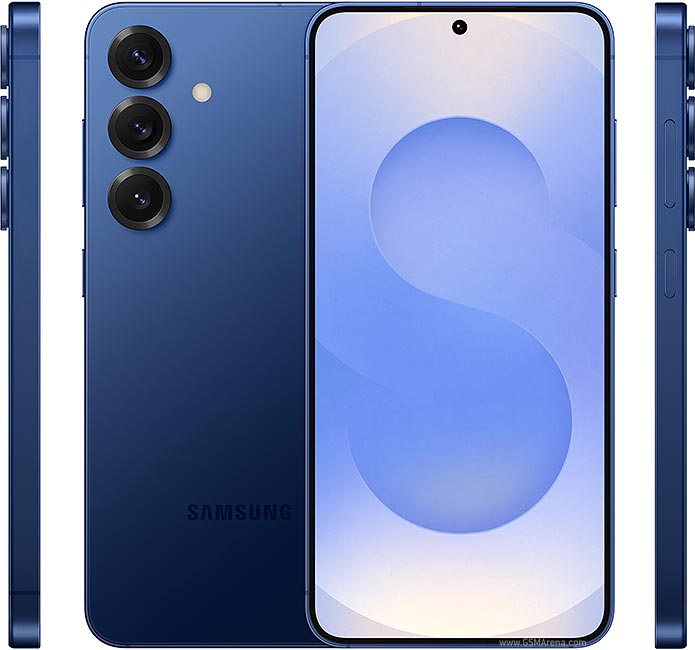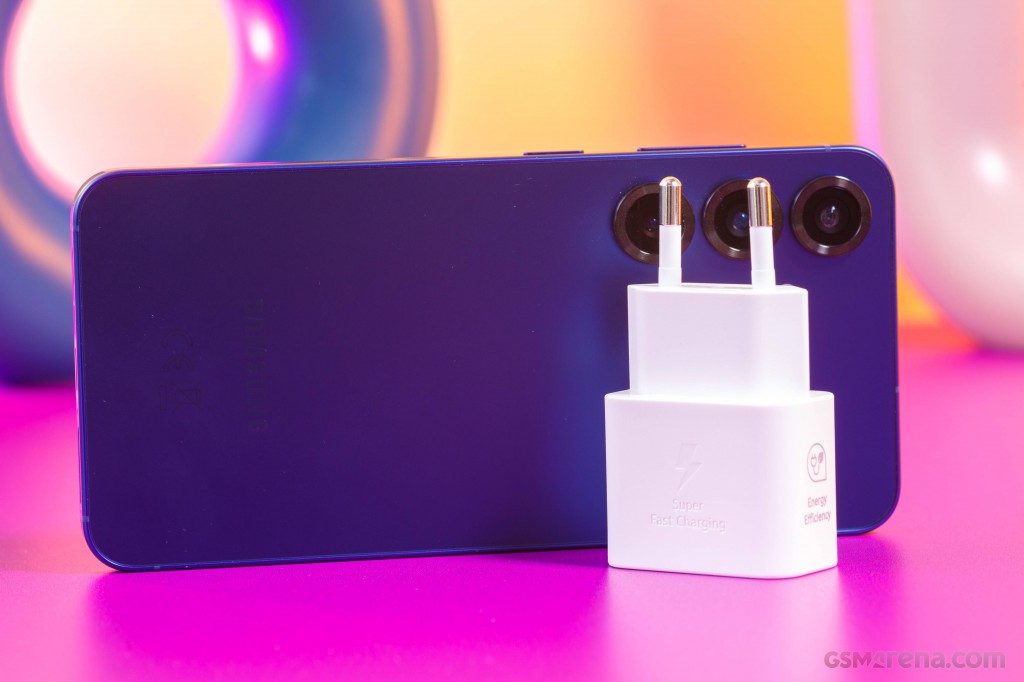
Launch and Availability
The Samsung Galaxy S25 was officially announced on January 22, 2025, and became available shortly afterwards on February 3, 2025. Since its release, it has been greeted with much enthusiasm from technology enthusiasts and Samsung fans alike. The phone’s availability across different carriers and regions has been widespread, ensuring that consumers around the globe have access to Samsung’s latest technology.
Body and Design
The Galaxy S25 sports a sleek and modern design, characterized by its glass front and back protected by Gorilla Glass Victus 2, and an aluminum frame. The dimensions are 146.9 x 70.5 x 7.2 mm, and it weighs only 162 grams, making it both portable and comfortable to hold. With options for dual nano-SIM and eSIM configurations, the phone offers versatility in terms of connectivity. Looking at the aesthetics, buyers have several color options to choose from, including Icy Blue, Mint, Navy, Silver Shadow, Pink Gold, Coral Red, and Blue Black, catering to diverse tastes and preferences.
Display
The Galaxy S25 is equipped with a 6.2-inch Dynamic LTPO AMOLED 2X display, featuring a resolution of 1080 x 2340 pixels with a 19.5:9 aspect ratio and a pixel density of approximately 416 ppi. The screen-to-body ratio is an impressive 91.1%, providing an immersive viewing experience. The display supports 120Hz refresh rate and HDR10+, with peak brightness reaching 2600 nits, making it vibrant and easy to view even under direct sunlight. The screen is protected by Corning Gorilla Glass Victus 2, ensuring durability against scratches and drops.
Performance
Under the hood, the Samsung Galaxy S25 is powered by the Qualcomm SM8750-AB Snapdragon 8 Elite chipset built on the 3 nm process. The octa-core CPU comprises 2x4.47 GHz Oryon V2 Phoenix L cores and 6x3.53 GHz Oryon V2 Phoenix M cores, delivering exceptional performance and efficiency. Accompanied by the Adreno 830 GPU, the S25 handles graphic-intensive tasks with ease, whether it's gaming or high-definition video editing.
In benchmark tests, the S25 scored 2193701 on AnTuTu (v10), 10050 on GeekBench (v6), and 6755 on 3DMark's Wild Life Extreme, reflecting its capability to tackle demanding applications seamlessly.
Camera
The Samsung Galaxy S25 boasts a versatile triple camera system on the rear. The main sensor is a 50 MP wide camera with an aperture of f/1.8 and 24mm focal length, featuring dual pixel PDAF and optical image stabilization (OIS). This setup is complemented by a 10 MP telephoto lens with 3x optical zoom, PDAF, and OIS, as well as a 12 MP ultra-wide lens for capturing expansive scenes with a 120° field of view. The camera supports Best Face, LED flash, auto-HDR, and panorama, ensuring high-quality photos in various conditions.
On the video front, the S25 supports 8K video recording at 24/30fps and 4K at 30/60fps. The device also supports 1080p video at 30/60/120/240fps with 10-bit HDR and HDR10+ capabilities. Gyro-EIS ensures stable and smooth video recordings.
The selfie camera features a 12 MP sensor with dual pixel PDAF, offering capabilities like HDR and HDR10+. It supports video recording in 4K at 30/60fps and 1080p at 30fps, making it ideal for high-quality video calls and content creation.
Battery and Charging
The Galaxy S25 is powered by a 4000 mAh Li-Ion battery, offering a respectable battery life that caters to active users. Charging options include 25W wired charging with PD3.0, which charges the battery to 50% in just 30 minutes. The phone also supports 15W wireless charging and 4.5W reverse wireless charging, providing both convenience and versatility when it comes to powering the device and other compatible accessories.
Memory and Storage
Samsung offers the Galaxy S25 in three storage variants: 128GB, 256GB, and 512GB, each paired with 12GB of RAM. Unfortunately, there is no option for storage expansion via a microSD card slot. However, the ample internal storage should suffice for most users' needs, allowing for the storage of vast numbers of apps, media files, and other data without concerns about running out of space.
Software and User Interface
The Galaxy S25 comes with Android 15 out of the box, featuring Samsung's One UI 7 on top. Samsung promises up to 7 major Android upgrades, ensuring that users receive software updates and new features for several years, prolonging the device's lifespan and enhancing its value proposition. The One UI interface is designed for simplicity and ease of use, featuring a range of customization options and productivity tools to optimize the user experience.
Connectivity
The connectivity options on the Samsung Galaxy S25 are extensive. The device supports GSM, CDMA, HSPA, EVDO, LTE, and 5G technologies, ensuring seamless mobile connectivity worldwide. The 5G bands are extensive, with compatibility for major global frequencies, enabling fast data speeds and low latency.
Other connectivity features include Wi-Fi 802.11 a/b/g/n/ac/6e/7 with tri-band capabilities and Wi-Fi Direct support. Bluetooth 5.4 ensures efficient pairing with peripherals, while the GPS system is bolstered by GLONASS, BDS, GALILEO, and QZSS support for precise location tracking. Additional features like NFC and a USB Type-C 3.2 port with DisplayPort 1.2 and OTG are also present, enhancing the phone's utility in various scenarios.
Audio
The audio experience in the Galaxy S25 is characterized by dual stereo speakers that provide immersive sound quality. However, the absence of a 3.5mm headphone jack may be a drawback for users with traditional wired headphones. The phone's loudspeaker performance scores a respectable -26.1 LUFS, ensuring clear and loud audio playback.
Sensors
The Samsung Galaxy S25 comes equipped with a range of sensors to enhance its functionality and user experience. This includes an ultrasonic under-display fingerprint sensor for quick and secure unlocking, along with standard sensors such as an accelerometer, gyro, proximity sensor, compass, and barometer. These sensors contribute to features like enhanced navigation, mobile gaming experiences, and fitness tracking capabilities.
Price and Models
As for pricing, the Samsung Galaxy S25 is positioned in the premium segment, with a starting price of $699.99 in the United States. Pricing may vary slightly based on regional taxes and carrier contracts. The phone is available in various models, each with different connectivity options to cater to diverse markets, including SM-S931B, SM-S931B/DS, SM-S931U, SM-S931U1, SM-S931W, SM-S931N, SM-S9310, SM-S931E, and SM-S931E/DS. The pricing and model availability ensure customers can opt for the variant that best suits their network requirements and budget.
Key Features of Samsung Galaxy S25
- Supports a wide range of network technologies: GSM, CDMA, HSPA, EVDO, LTE, and 5G
- Slim and lightweight design with a premium build: Glass front and back with Gorilla Glass Victus 2, and an aluminum frame
- Dynamic LTPO AMOLED 2X display with 120Hz refresh rate, HDR10+, and peak brightness of 2600 nits
- Powered by Qualcomm Snapdragon 8 Elite chipset and Octa-core CPU for high performance
- Offers up to 512GB of internal storage and 12GB RAM
- Triple main camera setup with 50 MP wide, 10 MP telephoto with 3x optical zoom, and 12 MP ultrawide lens
- Advanced video recording capabilities: supports up to 8K at 24/30fps and 4K at 30/60fps
- 12 MP selfie camera with dual pixel PDAF and 4K video recording
- Stereo speakers for enhanced audio experience
- Robust connectivity options including Wi-Fi 7, Bluetooth 5.4, and NFC
- Fingerprint sensor under display and multiple sensors for added functionality
- Fast charging: 25W wired and 15W wireless charging support
- Available in a variety of colors like Icy Blue, Mint, and Coral Red
- Competitive pricing starting at $699.99
Samsung Galaxy S25 Disadvantages
- Lack of 3.5mm headphone jack, which may be inconvenient for users with wired headphones.
- No expansion via memory card slot, limiting storage options to internal memory only.
- Relatively small battery capacity of 4000 mAh, which may not sustain heavy usage compared to higher-capacity batteries.
- No FM Radio, which some users might find useful for accessing local broadcasts.
- Charging speed could be faster, with only 25W wired charging available, which might be slower than competitors offering higher wattage options.
- High price point, which may not be suitable for budget-conscious consumers.































View Also
More Phones
All Rights Reserved +14266 Phones © Mobilawy 2025

























